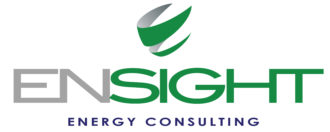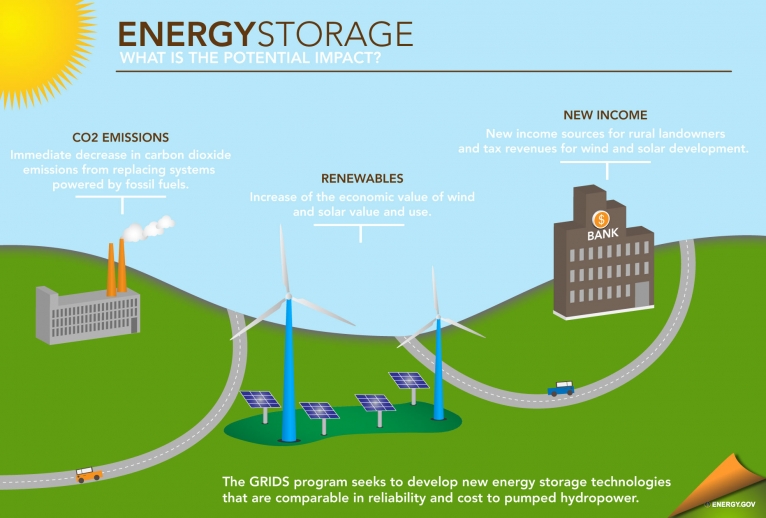Energy storage is the emerging technology to watch in the renewable energy industry. This niche market is developing fast because energy-storage technologies could prove beneficial to making renewable energy sources, such as wind and solar, more viable.
Ensight Energy Consulting helps energy developers, investors and lenders assess the viability of energy projects at every phase — from development through stages of operation. Our consultants are also equipped to provide advisory services to our clients looking for the right energy-storage technology for their project.
We’ve certainly picked up on interests in this developing sector. Venture capitalists invested more than $175 million in energy storage in the first six months of this year, with lithium-based and sodium-based batteries receiving most of that money, according to Mercom Capital Group.
We’re certain batteries are a growing-to-great part of the world’s renewable-energy future because they’ll allow more renewable sources to be connected to the grid. As this report in EcoWatch explains:
“Sun and wind energy are free, but because they are not constant sources of power, renewable energy is considered ‘variable’— it is affected by location, weather and time of day. Utilities need to deliver reliable and steady energy by balancing supply and demand. While today they can usually handle the fluctuations that solar and wind power present to the grid by adjusting their operations, as the amount of energy supplied by renewables grows, better battery storage is crucial.”
Among the utilities pioneering development of energy storage technology is Minneapolis-based Xcel Energy, the country’s top provider of wind power. The company, which serves our home state of Colorado, is aggressively testing new technology to store wind energy in batteries. Xcel’s research is focused on how well a one-megawatt wind energy battery storage system using sodium-sulfur battery technology can store wind energy and move it to the electricity grid when needed. Xcel is also testing battery storage for solar as part of its commitment to add 170 megawatts of new solar in Colorado.
As we’ve studied the developing energy-storage sector, here are some other things we’ve noted:
Where energy storage receives money — and makes money
Public-sector Research and Development. Last month, the U.S. Department of Energy’s Advanced Research Projects Agency-Energy (ARPA-E) announced “$37 million in funding for 16 innovative new projects as part of a new ARPA-E program: Integration and Optimization of Novel Ion-Conducting Solids (IONICS). IONICS project teams are paving the way for technologies that overcome the limitations of current battery and fuel cell products.”
The military. Our armed services are always interested in reviewing new technologies — especially those with mobile electric capabilities — that could save the lives of soldiers who transport fuel. Of all the nation’s military branches, the U.S. Navy has been especially aggressive in its use of renewable energy. In early October, the Navy ordered the largest-ever procurement of solar power when it inaugurated the 150-megawatt AC (210-megawatt DC) Mesquite 3 solar farm in Arizona. The enterprise will power about one-third of the electrical load at 14 California naval bases.
Places where the grid is unreliable and underdeveloped. Think the Caribbean, Southeast Asia and Africa in particular. “A lot of cities in the developing world only get power six or eight hours a day, and you have to deal with not having grid power the rest of the time and that’s just part of everyday life,” Mio Dart, a systems integrator engineer at Reflow, an Australian manufacturer of a zinc-bromide flow battery told RenewableEnergyWorld.com. “There is a way [for battery manufacturers and vendors] to make money simply by promising 24/7 or even near 24/7 power.”
Challenges the energy-storage tech sector will eventually overcome
Less expensive, competing sources. “… A diesel generator is just so cheap,” Andy Skumanich, founder of SolarVision Consulting, recently told RenewablEenergyWorld.com. He believes the developed and industrialized world already has a robust grid — which means energy storage will not be economically viable until storage costs come down, or grid power becomes overly expensive.
Hesitant private investors. The Commonwealth of Massachusetts recently issued a groundbreaking 200-page report detailing its desire to dramatically expand the energy-storage industry to help it save money, increase the use of renewable power and address climate change at home — and across other states. But as Massachusetts officials also explained:
“While the system benefits alone justify an investment in storage from a ratepayer perspective, the revenue mechanisms that would encourage investment from a private storage developer are insufficient. Without a means to be compensated for the value the storage resource provides to the system, private investors will simply not invest in building storage projects in Massachusetts…. The biggest challenge to achieving more storage deployment in Massachusetts is that there is a lack of clear market mechanisms to transfer some portion of the system benefits… to the storage project developer.”
Overcoming the limitations of current battery and fuel cell products. “While battery technologies have improved by leaps and bounds over the past few years, there remain some imposing physical and chemical barriers that have stifled further innovation,” said Dr. Ellen D. Williams, director of a U.S. Department of Energy program that is focusing on the use of ionics to improve energy storage and conversion. “Solid ion conductors made of affordable, easily produced materials could replace today’s mostly liquid electrolytes and expensive fuel cell parts, helping create a next generation of batteries and fuel cells that are low-cost, durable, and more efficient.”
While there are some limitations with energy storage technologies, there are also many opportunities — and we hope you’ll contact us about them.
Ensight Energy is a Denver-based consulting firm providing project management and technical advisory solutions to the power, energy and renewable-energy industries. Our staff includes technical advisors with expertise to support our clients with energy-storage projects. Contact us for support of your needs with technical due diligence during all phases of your project’s development and operation.

